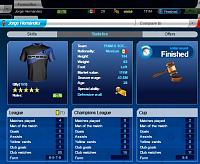Usage
The advice to ignore rather than engage with a troll is sometimes phrased as "Please do not feed the trolls."
Application of the term troll is subjective. Some readers may characterize a post as trolling, while others may regard the same post as a legitimate contribution to the discussion, even if controversial. Like any pejorative term, it can be used as an ad hominem attack, suggesting a negative motivation.[6]
As noted in an OS News article titled "Why People Troll and How to Stop Them" (25 January 2012), "The traditional definition of trolling includes intent. That is, trolls purposely disrupt forums. This definition is too narrow. Whether someone intends to disrupt a thread or not, the results are the same if they do."[7][8] Others have addressed the same issue, e.g., Claire Hardaker, in her Ph.D. thesis[8] "Trolling in asynchronous computer-mediated communication: From user discussions to academic definitions."[9] Popular recognition of the existence (and prevalence) of non-deliberate, "accidental trolls", has been documented widely, in sources as diverse as Nicole Sullivan's keynote speech at the 2012 Fluent Conference, titled "Don't Feed the Trolls"[10] Gizmodo,[11] online opinions on the subject written by Silicon Valley executives[12] and comics.[13]
Regardless of the circumstances, controversial posts may attract a particularly strong response from those unfamiliar with the robust dialogue found in some online, rather than physical, communities. Experienced participants in online forums know that the most effective way to discourage a troll is usually to ignore it,[citation needed] because responding tends to encourage trolls to continue disruptive posts – hence the often-seen warning: "Please do not feed the trolls".
The "trollface" is an image occasionally used to indicate trolling in Internet culture.[14][15][16]
]At times, the word can be abused to refer to anyone with controversial opinions they disagree with Such usages goes against the ordinary meaning of troll in multiple ways. Most importantly, trolls don't actually believe the controversial views they claim. Farhad Manjoo criticises this view, noting that if the person really is trolling, they are a lot more intelligent than their critics would believe.[17]


 45Likes
45Likes LinkBack URL
LinkBack URL About LinkBacks
About LinkBacks

 Reply With Quote
Reply With Quote


